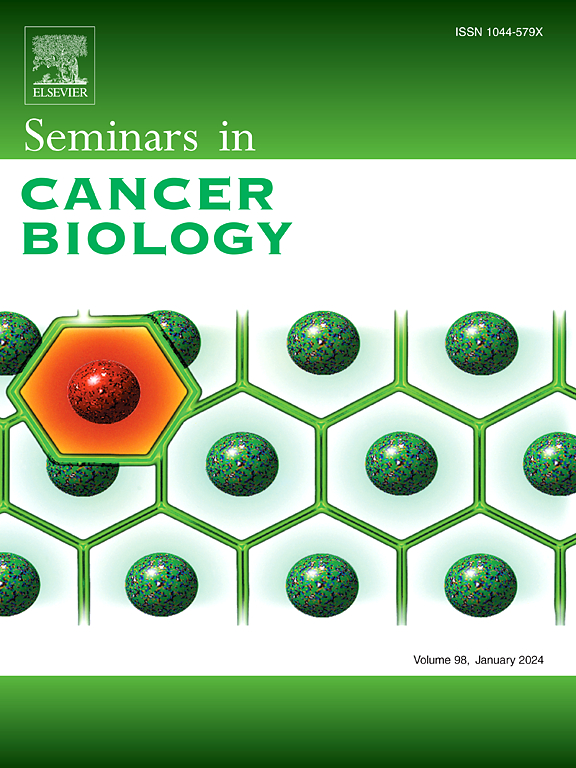维生素D:在肥胖相关癌症中起什么作用?
IF 12.1
1区 医学
Q1 ONCOLOGY
引用次数: 0
摘要
肥胖是许多类型癌症发病率和死亡的重要危险因素。维生素D可以降低多种癌症的发病率和死亡率。这篇综述概述了肥胖增加癌症风险的机制,维生素D如何降低癌症风险,以及维生素D在多大程度上抵消了肥胖对癌症的影响。维生素D是对抗肥胖致癌作用的部分盟友,特别是通过减少炎症和调节性激素受体、瘦素抵抗、细胞能量代谢、微生物群和缺氧。然而,它对肾素-血管紧张素系统、胰岛素抵抗和癌症中的氧化应激有更强的作用。此外,多余的脂肪组织会隔离维生素D,随着身体体积的增加,维生素D会被稀释,进一步降低其生物利用度和血清浓度,限制其抗癌的保护作用。综上所述,虽然维生素D不能逆转肥胖,但它通过针对几种机制在减轻其致癌作用方面发挥了重要作用。本文章由计算机程序翻译,如有差异,请以英文原文为准。
Vitamin D: What role in obesity-related cancer?
Obesity is an important risk factor for incidence and death for many types of cancer. Vitamin D reduces risk of incidence and death for many types of cancer. This review outlines the mechanisms by which obesity increases risk of cancer, how vitamin D reduces risk of cancer, and the extent to which vitamin D counters the effects of obesity in cancer. Vitamin D is a partial ally against some of obesity's pro-carcinogenic effects, notably by reducing inflammation and regulating sex hormone receptors, leptin resistance, cellular energy metabolism, the microbiome, and hypoxia. However, it can act stronger in against the renin-angiotensin system, insulin resistance, and oxidative stress in cancer. Additionally, excess fat tissue sequesters vitamin D and, along with its dilution in increased body volume, further reduces its bioavailability and serum concentration, limiting its protective effects against cancer. In conclusion, while vitamin D cannot reverse obesity, it plays a significant role in mitigating its pro-carcinogenic effects by targeting several mechanisms.
求助全文
通过发布文献求助,成功后即可免费获取论文全文。
去求助
来源期刊

Seminars in cancer biology
医学-肿瘤学
CiteScore
26.80
自引率
4.10%
发文量
347
审稿时长
15.1 weeks
期刊介绍:
Seminars in Cancer Biology (YSCBI) is a specialized review journal that focuses on the field of molecular oncology. Its primary objective is to keep scientists up-to-date with the latest developments in this field.
The journal adopts a thematic approach, dedicating each issue to an important topic of interest to cancer biologists. These topics cover a range of research areas, including the underlying genetic and molecular causes of cellular transformation and cancer, as well as the molecular basis of potential therapies.
To ensure the highest quality and expertise, every issue is supervised by a guest editor or editors who are internationally recognized experts in the respective field. Each issue features approximately eight to twelve authoritative invited reviews that cover various aspects of the chosen subject area.
The ultimate goal of each issue of YSCBI is to offer a cohesive, easily comprehensible, and engaging overview of the selected topic. The journal strives to provide scientists with a coordinated and lively examination of the latest developments in the field of molecular oncology.
 求助内容:
求助内容: 应助结果提醒方式:
应助结果提醒方式:


